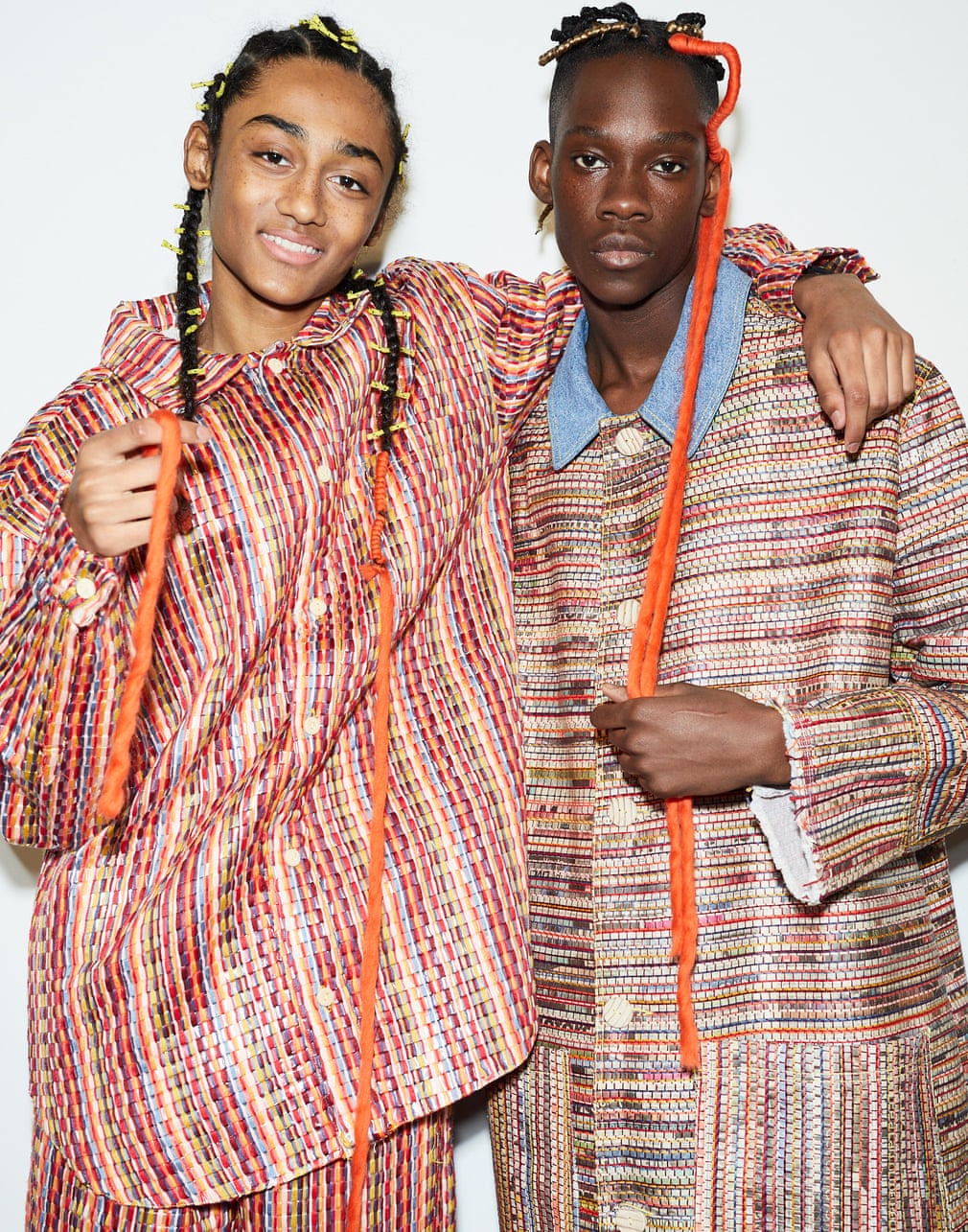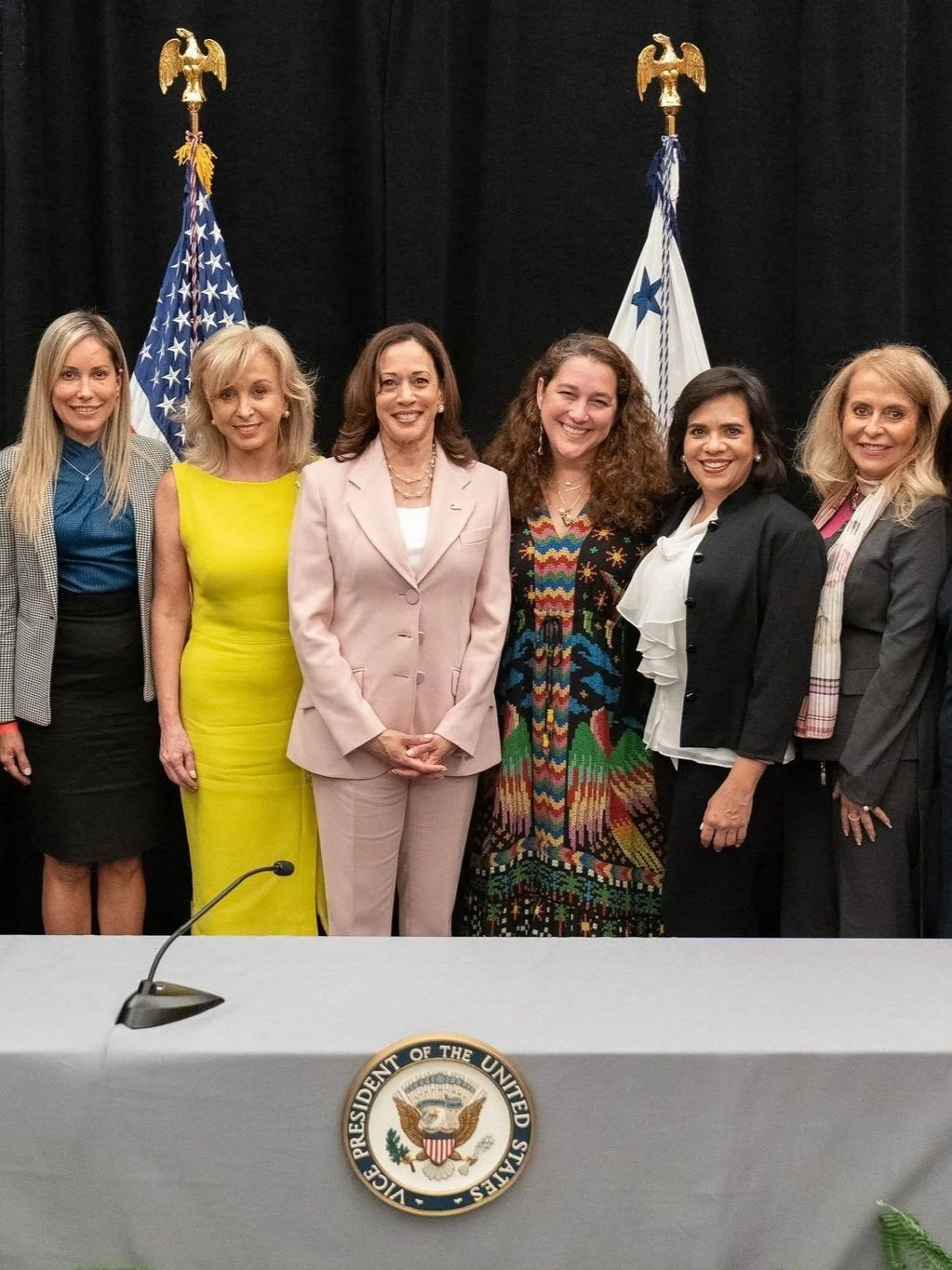Bethany Williams with The Duchess of Cornwall, Adwoa Aboah and fellow models at London Fashion Week / Photo: Darren Gerrish.
“Our insatiable appetite for clothes comes with a huge social and environmental price tag,” said Mary Creagh MP, Chair of the UK Government’s Environmental Audit Committee, speaking on Tuesday as London Fashion Week came to a close. The committee has called on the Government to make fashion retailers take responsibility for the clothes they produce and waste they create, concluding in its long-awaited report that the voluntary approach to improving the sustainability of the fashion industry is failing. However, despite these real concerns, there are sectors of the business that are striving to make a difference, and on the same day that the committee’s report was published, London-based designer Bethany Williams was officially recognized for her clear commitment to tackling both social and environmental issues.
The London College of Fashion (LCF) graduate was this year’s recipient of the Queen Elizabeth II Award for British Design, conceived in recognition of the role the fashion industry plays in society and diplomacy, and awarded to an emerging British fashion designer making a difference in terms of community or sustainability. Presented by The Duchess of Cornwall, who praised Williams for putting “change for the good at the heart of her business”, the award also demonstrated, according to LCF’s Frances Corner, “that it is possible to embrace and face head on the challenges that threaten our industry."
Models wearing coats and trousers made in collaboration with Italy’s San Patrignano drug rehabilitation center / Photo: Jamie Baker.
Hailing from a socially conscious and environmentally-aware family, Williams has regularly volunteered at homeless shelters and soup kitchens, and it was when working at a local foodbank while studying Critical Fine Art in Brighton that she decided to use fashion as a means of making a difference to society. Not only is her clothing line manufactured using sustainable materials, but it is produced in partnership with charities that support social change. And the designer’s debut appearance on the London Fashion Week schedule this week was a sartorial commentary on Britain’s housing crisis.
Named Adelaide House after a women’s shelter in Liverpool that houses the homeless, domestic abuse survivors, and prison-leavers, Williams commissioned artist Giorgia Chiarion to create a series of portraits of residents and abstract paintings of the city for the collection, which she then featured on her designs. She also made use of newspaper waste from the Liverpool Echo, transforming it into a textured material for the collection’s coats and trousers with the help of residents of San Patrignano, a rehabilitation center in Italy that teaches traditional crafts to people with drug dependency. Her jersey pieces were constructed in conjunction with LCF’s Making for Change program, which supports the training of women in Surrey’s Downview Prison; knitwear was created using renewable, biodegradable and deadstock yarns; and denim was sourced from a recycling facility.
The collection’s buttons were made by the Manx Workshop for the Disabled on the Isle of Man / Photo: Jamie Baker.
While Adelaide House will receive 20% of the profits from sales of the collection, it’s clear that Williams’ support for charities goes much further than simply financial, and she takes an active role in championing causes. Another example of her work ethos could be seen on the catwalk, where two homeless models joined the other professionals including activist Adwoa Aboah. They were cast from TIH Models, a specialist talent agency that creates paid opportunities in campaigns and fashion shows for individuals currently sleeping rough on the streets of London.
Looking to the future, Williams wants to explore alternative ways of working that are beneficial to both people and the planet, and one of her goals is to set up a UK-based social manufacturing unit. “I’d set it up as a training programme and run it as a social enterprise,” she told Harper’s Bazaar’s Ella Alexander. “I could give away parts of my manufacturing to people that need employment or a chance to learn new skills.”














